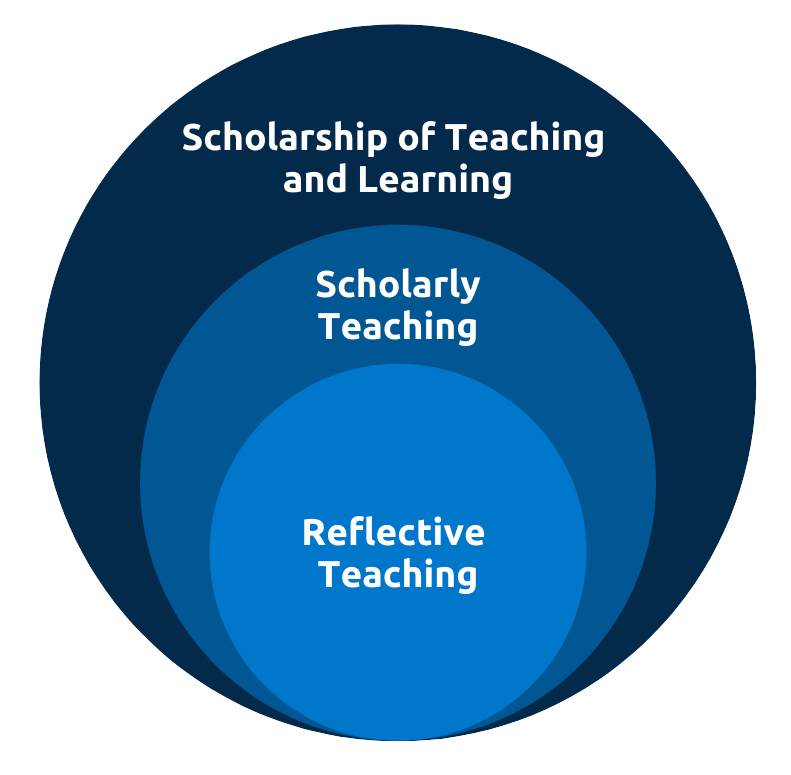What is SoTL?
Definition
Scholarship of teaching and learning (SoTL) is defined as the systematic study of teaching and/or learning and the dissemination of such work through presentations, performance, or publications. SoTL benefits both educators and learners with its purpose to improve learning by implementing optimized teaching practices based on research and evidence to support changes in practice.

According to Peter Felton (2013), SoTL involves the following good practices: a) SoTL inquiry is focused on student learning; b) SoTL research is grounded in context; c) the research is methodologically sound; d) research is conducted in partnership with students; and, e) the research is made appropriately public.
Application
Types of inquiries and questions
- What works? What evidence is there for the effectiveness of the approach, tool, invention, etc. that you are exploring?
- What is? Can you describe the features of the particular approach, student experience, or learning dynamic you are interested in? How do students learn?
- What could be? What are some goals for teaching and learning in the university environment? In your classroom?
- What's underneath? What shapes our thoughts about teaching practice?
(Toronto Metropolitan University Library, 2021)
Steps
-
Identify the research question
-
-
- What questions do you have about your practice? Identify a question that is meaningful to you, and one that can be answered based on the available resources.
- How does your question fit within the existing body of literature?
-
-
Design the study
-
-
- Determine which approach will help you to answer your research question (quantitative, qualitative, mixed methods).
- What will you collect as data? What methods will you use?
- Do you need approval from the Research Ethics Board?
-
-
Collect the data
-
-
- Use the tools you’ve selected to collect data about teaching and learning.
-
-
Analyze the data and draw conclusions
-
-
- How/does the data answer your research question?
-
-
Present and publish your SoTL project
-
- How will you share your research with others? (e.g., academic journal article, conference presentation, blog/newsletter, professional publication).
(Sipes, 2017; Vanderbilt University Centre for Teaching, no date)
Examples
There are numerous publications dedicated to SoTL. Here are a few examples:
The Canadian Journal for the Scholarship of Teaching and Learning
International Journal for the Scholarship of Teaching and Learning
Journal of Scholarship of Teaching and Learning
Resources
Elgie, S., Childs, R., Fenton, N., Levy, B. A., Lopes, V., Szala-Meneok, K., & Wiggers, R. D. (2012). Researching Teaching and Student Outcomes in Postsecondary Education: A Guide. Toronto: Higher Education Quality Council of Ontario.
References
Felton, P. (2013). Principles of good practice in SoTL. Teaching & Learning Inquiry: The ISSOTL Journal, 1(1), 121–125.
Sipes, S. (2017). But, I Don’t Know HOW To Do SoTL Research.
Toronto Metropolitan University Library. (2021). Scholarship of Teaching and Learning (SoTL). Licenced by Creative Commons Attribution International 4.0 License
Vanderbilt University Center for Teaching. (no date). Understanding SoTL.
